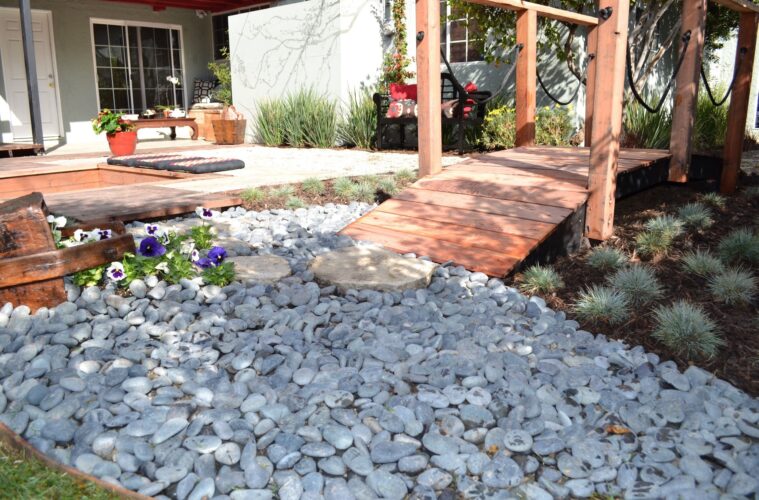Creating a visually stunning landscape that requires minimal maintenance is an aspiration for many homeowners. Juggling between the desire for a breathtaking yard and the reality of the time and effort required to maintain it, often leads to a compromise – seeking strategic ways to have both.
It’s about creating a delicate balance where aesthetics and practicality coalesce, giving birth to a spectacular, yet manageable landscape.
Let’s dive into some tried-and-true strategies for achieving gorgeous, low-maintenance landscape design ideas that keeps both your yard and you utterly content.
Embrace Native Plants
Opting for plants that are indigenous to your region is a smart first step in cultivating a low-maintenance landscape. Native plants are inherently adapted to the local climate and soil, demanding less water, fertilizers, and care.
They’re resilient to local pests and diseases, reducing the need for pesticides and ensuring that your garden remains vibrant with minimal input.
Smart Zoning
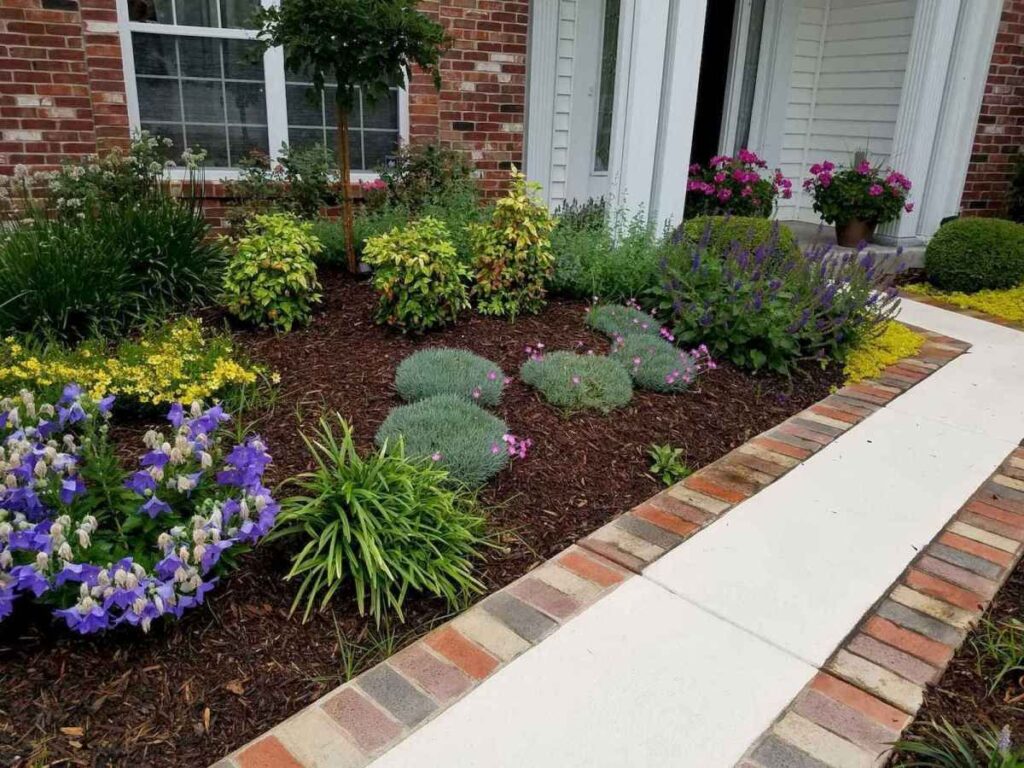
source: pinterest.com
Define different zones in your landscape based on plant needs and care levels. Group together plants with similar water, light, and nutritional requirements.
This strategy simplifies care routines and ensures that each plant receives optimal growing conditions without demanding additional, specialized attention.
Hardscaping Highlights
Implementing hardscape elements such as patios, pathways, and retaining walls not only provides functional benefits but also reduces the areas that require planting and subsequent maintenance.
Choose durable materials like stone or composite decking that stand up to the elements and require minimal upkeep. Properly executed, hardscapes add architectural intrigue, creating zones and vistas in your garden that remain appealing all year round.
Automatic Irrigation Systems
An automatic irrigation system saves both time and water. Drip irrigation, soaker hoses, or automated sprinklers efficiently deliver water to your plants, ensuring they receive adequate hydration with minimal water wastage.
Integrating smart timers or even IoT devices allows you to customize watering schedules, adapting to the varied needs of your plants throughout the seasons.
Consider Perennials Over Annuals
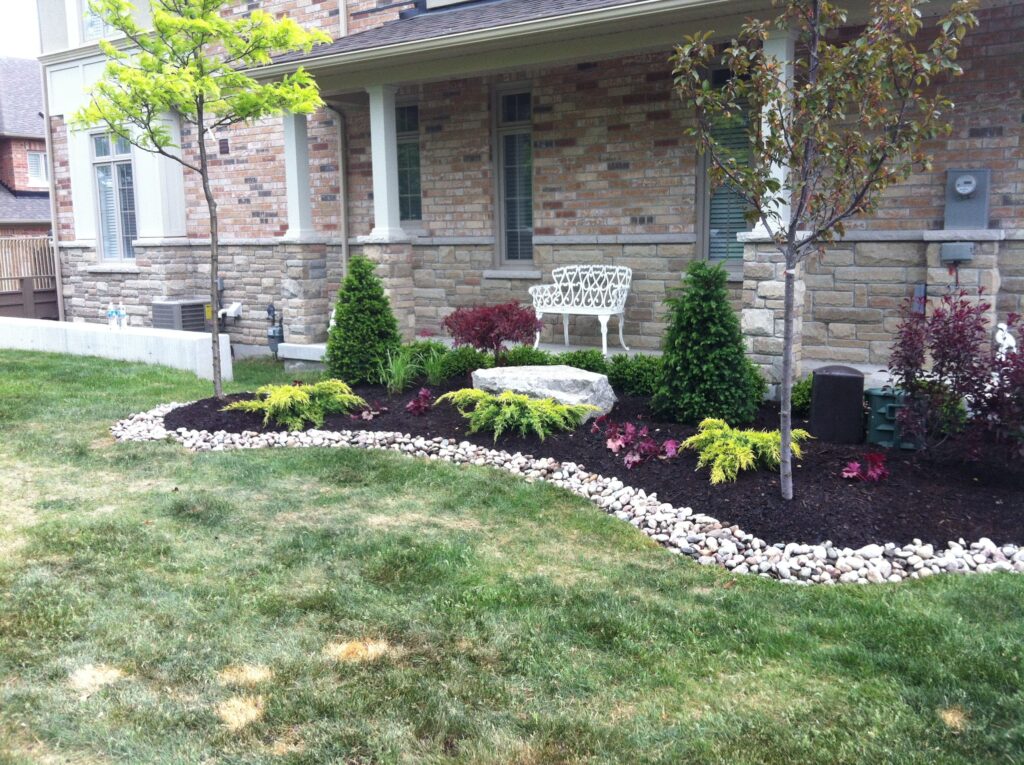
source: pinterest.com
Perennial plants offer longevity and reduce the need for yearly replanting, as opposed to their annual counterparts.
While they might have a shorter blooming period, strategic planning and staggering plants with different blooming times ensure your garden remains vivacious from spring through fall.
Mulching Matters
Mulch is a multitasker: it suppresses weeds, retains moisture, and gradually adds nutrients back into the soil as it decomposes.
Opt for organic mulch like wood chips or straw to reap the most benefits. Not only does it significantly reduce the time spent weeding, but it also minimizes watering frequency and enhances overall plant health.
Sustainable Lawn Alternatives
Traditional grass lawns are notorious for requiring intensive care. Explore alternatives like clover, moss, or even artificial turf that deliver a lush appearance without the demanding mowing and watering schedules.
Alternatively, create a ‘meadow’ using native grasses and wildflowers that require infrequent mowing and create a picturesque, biodiverse environment.
Thoughtful Pruning Practices
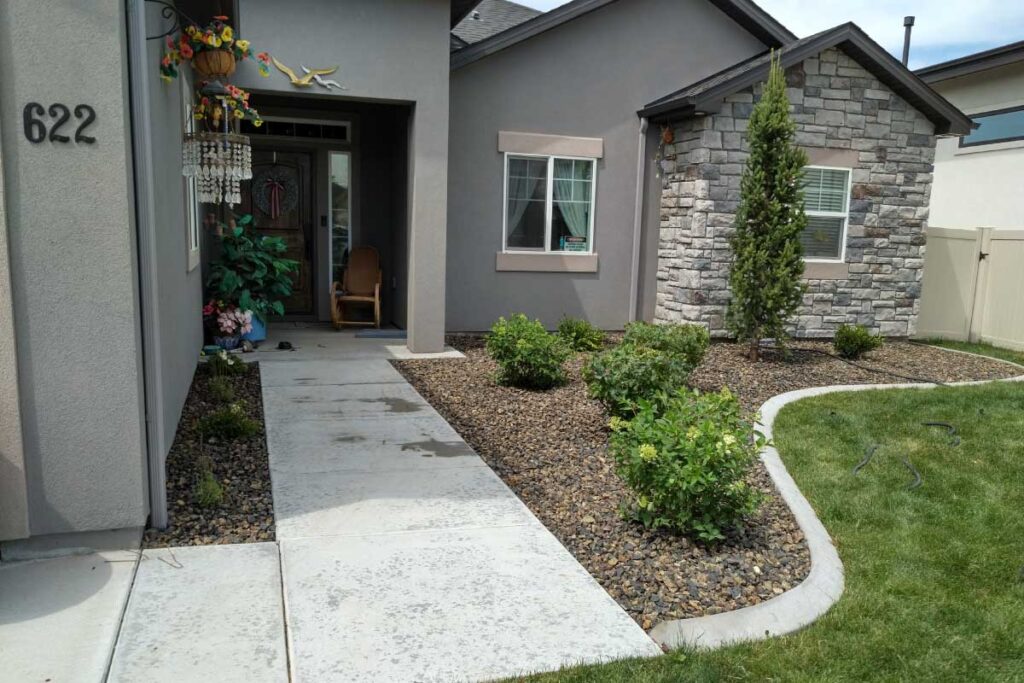
source: pinterest.com
Selecting low-pruning shrubs and trees simplifies maintenance. Certain species naturally maintain a compact, neat form without regular trimming.
When pruning is necessary, ensure it’s done judiciously to promote plant health, encourage blooming, and maintain the desired shape, without instigating excessive new growth that demands further attention.
Utilizing Ground Cover Plants
Employ ground cover plants like ivy, vinca, or pachysandra to create a living carpet that suppresses weeds and adds a rich tapestry of colors and textures to your landscape.
Such plants effortlessly fill in gaps, preventing erosion and reducing the requirement for additional plantings.
Integrating Xeriscaping Principles
Xeriscaping is not merely a strategy but a philosophy, placing water conservation at its core.
Incorporating drought-resistant plants, employing mulch, and reducing lawn areas are a few of the tenets of xeriscaping that inherently diminish maintenance and resource requirements while ensuring a robust and vibrant landscape.
Design With Future Growth In Mind
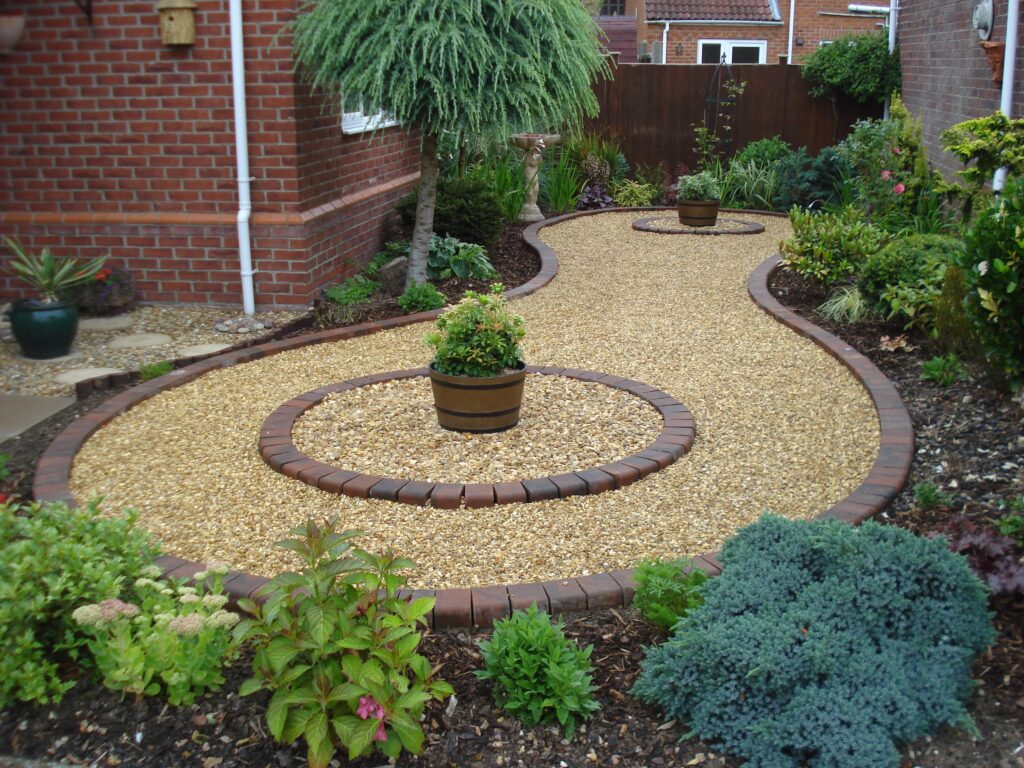
source: pinterest.com
Consider the mature size and growth habits of plants at the time of installation. This foresight prevents future conflicts and reduces the need for relocations or constant pruning.
Design pathways and plant beds with ample space to accommodate full-grown plants without impeding access or encroaching on neighboring plants.
With advanced tools such as DynaScape, planning and designing modern landscapes shouldn’t be too much of a hassle. With a bit of effort you can have the lawn of your dreams, that is light on the pockets, while not taking up too much of your time either.
Develop A Routine Maintenance Schedule
Even low-maintenance landscapes require some level of care. Establishing a routine that systematically addresses tasks like pruning, weeding, and fertilizing ensures your garden stays in top form without becoming overwhelming.
Seasonal checklists can be instrumental in preventing neglect of essential tasks and managing your time effectively.
Adopt An Integrated Pest Management Approach
Embracing strategies to naturally mitigate pests, such as introducing beneficial insects, selecting pest-resistant varieties, and employing physical barriers, negates the need for frequent, labor-intensive pest control interventions.
This ecological approach safeguards both your plants and the local environment from harmful chemical applications.
Build a Composting System
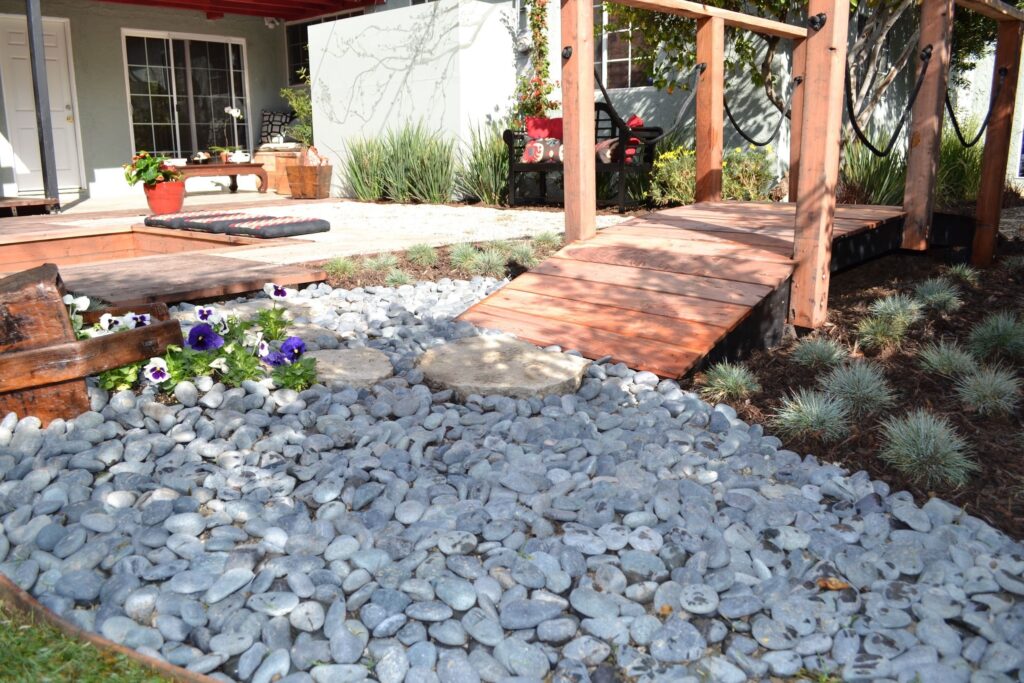
source: pinterest.com
Having a compost system not only reduces kitchen and garden waste but also provides a consistent supply of nutrient-rich compost to invigorate your plants.
This self-sustaining approach enhances soil health, supports robust plant growth, and mitigates the need for additional fertilization.
Conclusion
Creating a stunning, low-maintenance landscape is an attainable dream that harmoniously melds beauty and practicality.
By thoughtfully employing strategies that align with the local environment and your personal aesthetic, you can cultivate a lush, vibrant outdoor space that brings joy without demanding relentless effort. \
From plant selection to strategic hardscapes, every element should be viewed as a cohesive component of a sustainable, easily manageable landscape that will enchant for years to come.
While this provides a comprehensive overview, there’s always more to learn and adapt to your unique space and preferences. Whether it’s discovering the perfect perennial or finding new innovations in irrigation, the journey to a low-maintenance, awe-inspiring landscape is bound to be a rewarding adventure.

